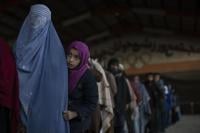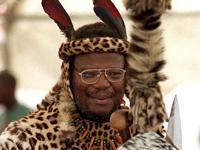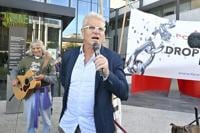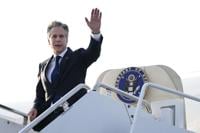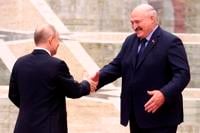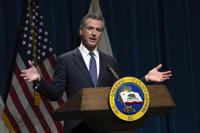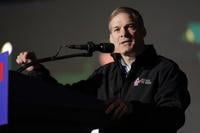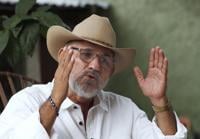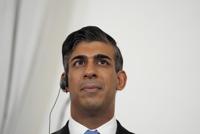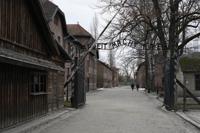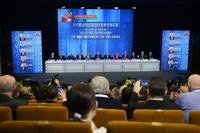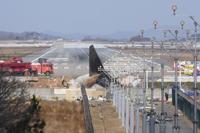MONTEVIDEO, Uruguay (AP) — Voters in the small South American nation of Uruguay cast ballots Sunday in a presidential election in which a center-left rural mayor pulled firmly ahead of the conservative incumbent-party candidate, pushing the race into a second round of voting.
Both of the leading candidates — a two-time mayor and former history teacher, Yamandú Orsi, 57, and the center-right ruling party's candidate, Álvaro Delgado, 55 — told crowds late Sunday that they would face each other in a heated runoff on Nov. 24, reflecting official election results with over 90% of votes counted hours after polls closed.
The outcome came as little surprise. But Uruguay's remarkably civilized presidential race has emerged as an exception in the region, defying trends of bitter division and democratic erosion seen across Latin America and in the United States. Far from mud-slinging and personal attacks, Uruguay's contest focused on key issues such as rising crime, pension reform and the quality of schools.
Uruguay’s center-left Broad Front alliance went into the election as the front-runner, reflecting a desire for a stronger social safety net in one of Latin America’s most expensive countries, where one in five children lives in poverty and an aging population has clamored for higher pensions.
The Broad Front held the presidency in Uruguay for 15 years, from 2005-2020, presiding over robust economic growth and socially liberal laws that raised the tiny country’s global profile with the pioneering legalization of abortion, same-sex marriage and marijuana for recreational use.
Most of that transformation occurred under the tenure of former , an eccentric former guerrilla and who has backed Orsi.
“We are going in for these 27 days,” Orsi told thousands of energized supporters waving flags and setting off flares in Montevideo late Sunday, referring to a final campaign push over the coming weeks. “The Broad Front is once again the most voted party in Uruguay."
Orsi’s working-class roots, casual wear and promise to eschew many of the benefits enjoyed by heads of state appears to draw inspiration from Mujica, now 89 and .
“We need to support democracy, not because it is perfect, but because humans have not yet invented anything better,” Mujica told journalists after casting his ballot from a wheelchair.
The Broad Front has long taken a more moderate stance than other leftist governments in the region, such as in Venezuela and Bolivia. Orsi supports tax incentives to lure investors and as mayor sought to develop the country's nascent high-tech scene.
Delgado — a buttoned-down former congressman who served as a senior aide to current — campaigned on pledges to continue the business-friendly policies of the president. Uruguay’s constitution does not allow for re-election, but Lacalle Pou’s approval ratings of some 50% have strengthened his party's candidate.
In stark contrast to recent electoral contests in neighboring Argentina and Brazil, where politically polarized electorates raged against the status quo, Delgado's campaign slogan was simply: “Re-elect a good government."
“People placed their trust in us,” Delgado told supporters shortly after midnight. “Tomorrow we'll be meeting to plan the campaign for the runoff.”
Delgado was joined onstage by Uruguay's most unconventional candidate, Andrés Ojeda, 40, a muscular, media-savvy lawyer with a penchant for adopting dogs and discussing star signs. Ojeda placed in a distant third but secured surprisingly strong support, taking nearly 17% of the vote.
He sought to spice up what some political commentators have scorned as one of the world's dullest elections, energizing apathetic young voters with splashy ads that show him lifting weights in tight undershirts at the gym.
“The government cannot be won without us,” Ojeda said at the election night rally alongside Delgado, a sign of his intention to back the governing party to block a possible Broad Front victory.
Preliminary results reported by electoral authorities showed Orsi leading with over 41% of the vote, compared with just over 27% for Delgado. From the moment exit polls surfaced, it was clear that Orsi would fall short of the 50% threshold needed to avoid a runoff on Nov. 24, reflecting voter apathy in the race between rivals whose talking points often overlap.
Electoral officials reported a turnout of 89% of 2.7 million eligible voters in Uruguay, widely considered a model democracy where voting in presidential and congressional contests is compulsory.
More divisive than the race itself Sunday was a constitutional referendum that would have overhauled Uruguay’s social security system by lowering the retirement age, boosting minimum payouts and transferring Uruguayans’ privately managed savings to a government-run trust.
There was a general sigh of relief as exit polls showed that Uruguayans rejected the radical scheme that would have massively expanded the country’s fiscal deficit.
"It’s reassuring for many, especially investors, that the pension issue wasn’t approved," said Juan Cruz Díaz, a political analyst who runs the Cefeidas consultancy group in Buenos Aires.
With rising homicides and robberies a top voter concern in the nation traditionally considered one of the safest in Latin America, Uruguayans voted on another constitutional reform that would have allowed police to search homes at night with a court order. Exit polls suggested that the referendum would also come up short of the absolute majority needed to pass.
Despite Orsi's lead in Sunday's vote, experts cautioned the final outcome was far from certain, with the governing coalition expected to enjoy a surge in support during the final stretch.
“Tomorrow begins a new, focused campaign,” Cruz Díaz said. “It's not over yet.”
___
DeBre reported from Buenos Aires, Argentina
















